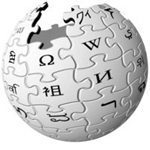Is Wikipedia 'knowledge' merely third party hearsay?


In a Wall Street Journal e-mail debate with Dale Hoiberg, editor-in-chief of Britannica, Wales put forth his familiar ode to Wikipedia, “the free encyclopedia that anyone can edit”:
there is a vast army of volunteers eager to help good people like you and me who don't quite have enough time and space to do everything from scratch ourselves, and they are writing a comprehensive encyclopedic catalog of all human knowledge.
What is "knowledge" to Wikipedia, however?
In “Why Digg fraud, Google bombing, Wikipedia vandalism will not be stopped” I cite Wikipedia on its aversion to truth, quoting its Wikipedia:Verifiability: This page is an official policy on the English Wikipedia; last modified 7 September 2006.
The threshold for inclusion in Wikipedia is verifiability, not truth...
"Verifiability" in this context does not mean that editors are expected to verify whether, for example, the contents of a New York Times article are true. In fact, editors are strongly discouraged from conducting this kind of research, because original research may not be published in Wikipedia. Articles should contain only material that has been published by reliable sources, regardless of whether individual editors view that material as true or false.
In attempting to justify its third party notion of "verifiability," Wikipedia traces a convoluted scenario confirming its aversion to truth:
A good way to look at the distinction between verifiability and truth is with the following example. Suppose you are writing a Wikipedia entry on a famous physicist's Theory X, which has been published in peer-reviewed journals and is therefore an appropriate subject for a Wikipedia article. However, in the course of writing the article, you contact the physicist and he tells you: "Actually, I now believe Theory X to be completely false." Even though you have this from the author himself, you cannot include the fact that he said it in your Wikipedia entry.
Why not? Because it is not verifiable in a way that would satisfy the Wikipedia readership or other editors. The readers don't know who you are. You can't include your telephone number so that every reader in the world can call you for confirmation. And even if they could, why should they believe you?
For the information to be acceptable to Wikipedia you would have to persuade a reputable news organization to publish your story first...
If the newspaper published the story, you could then include the information in your Wikipedia entry, citing the newspaper article as your source.
In "Web 2.0 'knowledge': future of modern humanity? (I hope not)" I discuss theories of “Epistemology and Logic” to put forth that "knowledge, by definition, must not only be structured, it must reflect verifiable truths." I cite “Ideas of the Great Philosophers,” by William Sahakian and Mabel Sahakian:
How much can a human being know?
Is knowledge possible?
What are the practical and theoretical limits of knowledge?The principal task of logic is to investigate the nature of correct thinking and valid reasoning, including the laws of rational thought.
The laws of logic cannot themselves disclose facts about the world of man or nature. In order to discuss such facts, or to evaluate the content of an argument, the individual must decide upon the criteria which can enable him to distinguish what is true from what is not true.
Wikipedia may derive its name from the classical Greek traditions for education, but it does not emulate the classical Greek philosophical respect for the truth.